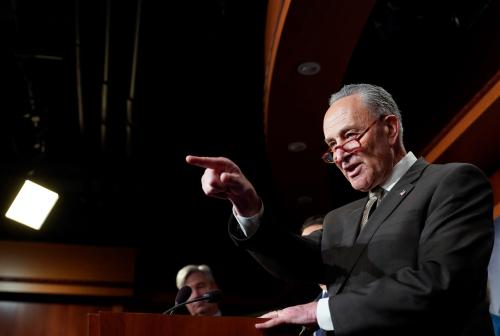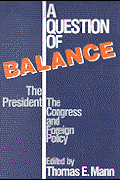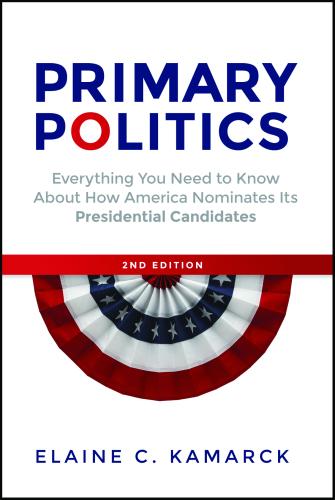This post is part of the series Race for the Senate 2018.
 Texas is hosting one of the most talked-about Senate races this year, much to the surprise of Texans. The national attention on this race is somewhat out of step with the polling. Several polls from October show that incumbent Ted Cruz has a 7–10 point lead over his challenger, Congressman Beto O’Rourke. The polls suggest a fairly conventional outcome—the incumbent Republican in a fairly red state is likely to win. So why are people paying attention? Beto O’Rourke is a charismatic candidate, promising a different kind of politics. He’s travelled to every county in Texas; his rallies draw record crowds and his fundraising is unprecedented. He pledges that if elected, he’ll serve 6 years, but that does not stop observers from speculating about his national appeal. He gives weary Texas Democrats hope for his effect on down-ballot races and future party-building strength. And maybe, just maybe, he might win.
Texas is hosting one of the most talked-about Senate races this year, much to the surprise of Texans. The national attention on this race is somewhat out of step with the polling. Several polls from October show that incumbent Ted Cruz has a 7–10 point lead over his challenger, Congressman Beto O’Rourke. The polls suggest a fairly conventional outcome—the incumbent Republican in a fairly red state is likely to win. So why are people paying attention? Beto O’Rourke is a charismatic candidate, promising a different kind of politics. He’s travelled to every county in Texas; his rallies draw record crowds and his fundraising is unprecedented. He pledges that if elected, he’ll serve 6 years, but that does not stop observers from speculating about his national appeal. He gives weary Texas Democrats hope for his effect on down-ballot races and future party-building strength. And maybe, just maybe, he might win.
To understand this race, there are two key things to know: First, we’re a one-party state. No Democrat has won statewide office since 1994—this is the longest any state has gone without electing a Democrat and it’s particularly notable because we really like statewide elected positions (we elect Governor, Lieutenant Governor, Attorney General, Comptroller, Land Commissioner, Agriculture Commissioner, and Railroad Commissioner (3)). To say Democrats are used to losing in Texas is an understatement. Republican strength in Texas is such that our state legislature is essentially divided between 3 parties: the Tea Party Republicans, the more traditionally business-friendly Republicans, and the Democrats.
The second key to understanding this race is that Texas has some of the lowest rates of voter turnout in the country. In midterm elections, Texas ranks 50th in the nation—there are many reasons for this. We have a young population, early registration deadlines and one-party control. Texas’s large Latino population lags behind other racial groups in terms of registration, as well. Beto O’Rourke likes to say that we’re not a red state, we’re a non-voting state. His campaign depends on turning many of the non-voters into voters. He’s running as a progressive, much like Stacey Abrams in Georgia. Both candidates seek to remake the electorate rather than chase the middle.
The divisions between Cruz and O’Rourke are countless, and the campaign has focused on style more than issues. O’Rourke rejects PAC money, promising a campaign for the people. Cruz runs on his record representing Texans, and paints O’Rourke as a liberal Hillary supporter who’s out of touch with Texas voters. The issues that come up most often are immigration, gun rights, and health care, with each taking their respective party’s position. For example, Cruz echoes Donald Trump’s call for a border wall & stricter enforcement of immigration laws, while Beto O’Rourke calls for immediate citizenship for DREAMers and a pathway to citizenship for undocumented immigrants in the US. Tonally, O’Rourke has welcomed Republican and independent crossovers, touting both his willingness to reach across the aisle and his road trip with Republican Rep. Will Hurd that he livestreamed. Cruz’s bet is that his strong conservatism is more in tune with the majority of the Texas electorate.
Donald Trump lurks in the background of this election. He promised a rally in the biggest stadium in Texas, and ultimately held a rally at Houston’s Toyota Center (capacity 18,000—not the biggest stadium). The Cruz-Trump relationship is odd to say the least. Cruz was the last man standing in the Republican primary before Trump cinched the nomination. Trump’s campaign mocked Cruz’s wife’s appearance and seemed to suggest Cruz’s dad was involved in JFK’s murder. Cruz famously urged the RNC to “vote your conscience” during the convention, only to endorse Trump weeks later with a photo op of him phone banking for Trump. These indignities are not forgotten in Texas.
Local filmmaker Richard Linklater used a character from his movie Bernie to mock Ted Cruz’s “Tough as Texas” slogan. At one point during the campaign Trump tweeted “Why would the people of Texas support Ted Cruz when he has accomplished absolutely nothing for them. He is another all talk, no action pol!”—that tweet is now painted on the side of a billboard truck. The Trump truck is driven around Texas and parked outside of campaign events. In the first debate, Cruz portrayed his ability to work with the president as a strength. Cruz looks to the Trump administration for support, including events in the state with Vice President Mike Pence, and the president’s son Don, Jr., but the uneasy relationship between Ted Cruz and Donald Trump is not forgotten in Texas, and the president is playing a backseat role in the campaign.
Both candidates face significant challenges. Beto O’Rourke’s biggest obstacle is that he’s a Democrat in a Republican state. For a less obvious drawback though, I’ll point to his primary election weakness in the heavily Latino Rio Grande Valley – he was the clear front runner in the state but he lost many of the border counties to a less prominent competitor, Sema Hernandez. O’Rourke’s campaign has stepped up their efforts in the area and they will need a major turnaround. Cruz’s biggest struggle in this campaign is that he’s an insider. This is an unusual place for him to be. Cruz ran in 2012 as an anti-establishment, Tea Party Republican. He defeated an establishment Republican David Dewhurst in the Republican primary, and went to Washington on a mission to shake things up. His governing record was consistent with that message and it won him few friends in DC. Five years later, with plenty of time spent in DC (and Iowa), Cruz is no longer the upstart. He’s campaigning in part on what he’s done for Texans by working in government. It’s a shift in tone that doesn’t always work.
A Beto O’Rourke win in Texas is unlikely, and it would be stunning. A Ted Cruz win is more predictable, but even a narrow win could signal a fundamental shift in Texas politics. If Beto O’Rourke comes within 5 points of Ted Cruz, it might be time for both parties to take our state more seriously.
The Brookings Institution is committed to quality, independence, and impact.
We are supported by a diverse array of funders. In line with our values and policies, each Brookings publication represents the sole views of its author(s).










Commentary
Race for the Senate 2018: Key issues in Texas
November 1, 2018